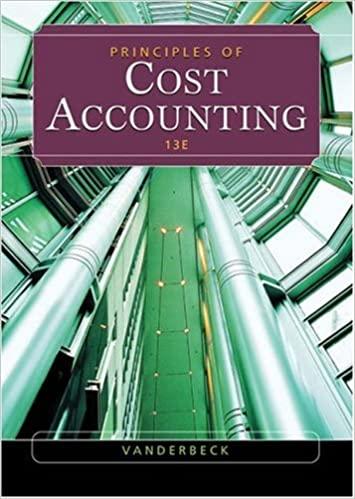Question
Large Ltd. purchased 70% of Small Company on January 1, Year 6, for $770,000, when the statement of financial position for Small showed common shares
Large Ltd. purchased 70% of Small Company on January 1, Year 6, for $770,000, when the statement of financial position for Small showed common shares of $560,000 and retained earnings of $260,000. On that date, the inventory of Small was undervalued by $71,000, and a patent with an estimated remaining life of five years was overvalued by $90,000.
Small reported the following subsequent to January 1, Year 6:
| Profit (Loss) | Dividends | |||||
| Year 6 | $ | 144,000 | $ | 41,000 | ||
| Year 7 | (51,000 | ) | 26,000 | |||
| Year 8 | 106,000 | 56,000 | ||||
A test for goodwill impairment on December 31, Year 8, indicated a loss of $20,900 should be reported for Year 8 on the consolidated income statement. Large uses the cost method to account for its investment in Small and reported the following for Year 8 for its separate-entity statement of changes in equity:
| Retained earnings, beginning | $ | 660,000 | |||
| Profit | 360,000 | ||||
| Dividends | (54,000 | ) | |||
| Retained earnings, end | $ | 966,000 | |||
Required:
(a) Prepare the cost method journal entries of Large for each year. (If no entry is required for a transaction/event, select "No journal entry required" in the first account field.)
Year 6


Year 7

Year 8

(b) Compute the following on the consolidated financial statements for the year ended December 31, Year 8: (Omit $ sign in your response.)
(i) Goodwill
Goodwill $
(ii) Non-controlling interest on the statement of financial position
Non-controlling interest $
(iii) Retained earnings, beginning of year
Retained earnings, beginning of year $
(iv) Profit attributable to Larges shareholders
Profit attributable to Larges shareholders $
(v) Profit attributable to non-controlling interest
Profit attributable to non-controlling interest $
(c) Now assume that Large is a private entity, uses ASPE, and chooses to use the equity method to report its investment in Small.
(i) Prepare Larges journal entries for each year related to its investment in Small. (If no entry is required for a transaction/event, select "No journal entry required" in the first account field.)
Year 6




Year 7



Year 8



(ii) Determine the investment in Small at December 31, Year 8. (Omit $ sign in your response.)
Investment in Small under equity method $
Journal entry worksheet Record the purchase of 70% of Small Company. Note: Enter debits before credits. Journal entry worksheet Record dividend received from Small Company. Note: Enter debits before credits. Journal entry worksheet Record dividend received from Small Company. Note: Enter debits before credits. Journal entry worksheet Record dividend received from Small Company. Note: Enter debits before credits. Journal entry worksheet Record the purchase of 70% of Small Company. Note: Enter debits before credits. Journal entry worksheet Record 70\% of Small Company year 6 net income. Note: Enter debits before credits. Journal entry worksheet Record 70% of the dividend received from Small Company. Note: Enter debits before credits. Journal entry worksheet Record 70% of acquisition differential amortization and impairment of year 6 . Note: Enter debits before credits. Journal entry worksheet Record 70% of Small Company year 7 net loss. Note: Enter debits before credits. Journal entry worksheet Record 70% of the dividend received from Small Company. Note: Enter debits before credits. Journal entry worksheet 1 Record 70% of acquisition differential amortization and impairment of year 7. Note: Enter debits before credits. Journal entry worksheet Record 70% of Small Company year 8 net income. Note: Enter debits before credits. Journal entry worksheet Record 70% of the dividend received from Small Company. Note: Enter debits before credits. Journal entry worksheet Record 70% of acquisition differential amortization and impairment of year 8 . Note: Enter debits before credits
Step by Step Solution
There are 3 Steps involved in it
Step: 1

Get Instant Access to Expert-Tailored Solutions
See step-by-step solutions with expert insights and AI powered tools for academic success
Step: 2

Step: 3

Ace Your Homework with AI
Get the answers you need in no time with our AI-driven, step-by-step assistance
Get Started


